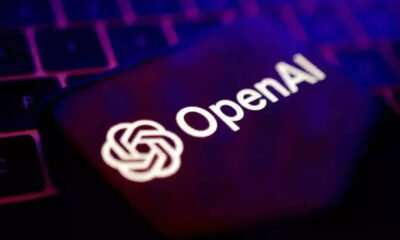AI in education: AI is what will shape the future of work. A new survey says that 86% of students use AI for schoolwork, but 58% of them still don’t feel ready for a world where AI is everywhere. This big gap puts a lot of pressure on higher education. Now, US colleges and universities are doing something about the gap by using AI in their classrooms instead of just talking about ethics in theory.
As author B.F. Skinner famously said, “The real problem is not whether machines think but whether men do.” That spirit is at the core of a quiet revolution taking place on campuses. Now, the best schools are making structured frameworks and AI classes that are only for certain fields. What do they want? To show students how to think critically about AI and not just use it, so that the next generation is truly AI-literate and ready for what’s next.
Check Out: Google Earth AI: DeepMind AlphaEarth Announces State-of-the-Art Geospatial AI Models
How Top US Universities are Shaping the Future of AI in Education?
American’s top colleges are also making it easier for students and young professionals who want to get ahead in their careers. Columbia and MIT are at the forefront of this movement by offering a wide range of professional certificates and artificial intelligence courses. These programs are for anyone and everyone, irrespective of age. The universities offer in-depth machine learning training for people who want to become developers, as well as simple no-code AI training for people who work in business or media.
These AI courses are more than just ways to learn more about Artificial Intelligence. They are a direct response to the need of the job market for people who know how to use AI. Universities are giving the next generation a clear edge in getting new skills and moving up in their careers by offering these certifications.
California State University is becoming the first AI-powered university system, with ChatGPT Edu being rolled out to 460,000 students and over 63,000 staff and faculty. pic.twitter.com/xdOVrRvvCU
— Greg Brockman (@gdb) February 4, 2025
Barnard College’s Framework for AI Literacy
Barnard College is taking the lead by using a unique four-level AI Literacy Framework to make AI a part of everyday life on campus. The college teamed up with Google to give every student access to tools like Gemini and NotebookLM, but their strategy goes much deeper than that. The framework starts with simple ideas and moves on to more complex, discipline-specific uses.
Most importantly, it teaches students how to think critically about the ethical issues it brings up. This layered model, along with workshops and group learning sessions, is meant to help people learn skills that will last. It makes sure that every graduate, no matter what they studied, knows how to use AI wisely in their field when they leave campus.
Columbia University’s Focus on AI Leadership
Columbia University is working hard to make it easier for the next generation of tech leaders to get ahead. Their strong Professional Certificate Program in Artificial Intelligence is a big part of this vision. The best part of the training is that anyone can join in. Whether they are a student or a working professional who wants to learn something new, there is room for all kinds of learners.
Columbia University has powerful AI tools like CU-GPT and CHAT, which were created on campus. Not to mention that the university offers free access to ChatGPT Education. They teach a lot of important AI topics in their classes, from robotics and machine learning to smart systems.
The university believes that students will only be prepared for the real world when they possess practical experience and specialised certifications.
New York University (NYU) Integrates AI for All Ages
New York University also aims to teach AI to students of all ages, from high school to graduate school. Their Pre-College Summer Program at NYU Shanghai, thus, lets high school students use the technology for the first time. The program teaches coding and has important lessons about how to use AI responsibly.
NYU also uses AI in many of its college majors by having interdisciplinary workshops. The workshop has students from fields like public policy, media, and healthcare working together.
Massachusetts Institute of Technology (MIT) Builds an AI Ecosystem
MIT has made a complete AI learning space that works for both tech-savvy students and those who are just getting started. Their AI ecosystem includes the Professional Certificate Program in Machine Learning. MIT also offers no-code AI training to its learners. People who already know how to code should take the course.
This lets people who don’t work in tech use it with ease. There is the Responsible AI for Social Empowerment and Education (RAISE) program of the university that has helped more than a million K–12 students. This big plan shows that MIT has a big and deep effect on AI and education.
Check Out: The AI Job Shift: Microsoft Reveals which Professions will Thrive (and Which Won’t)
To sum up, US universities aim at a better future with AI through educating the masses. Their plans show that higher education is changing in a big way, and everyone should be ready to embrace the change. So that the world will have a new generation of problem-solvers and experts who will learn from simple AI tools to structured frameworks and specialised AI courses.











































